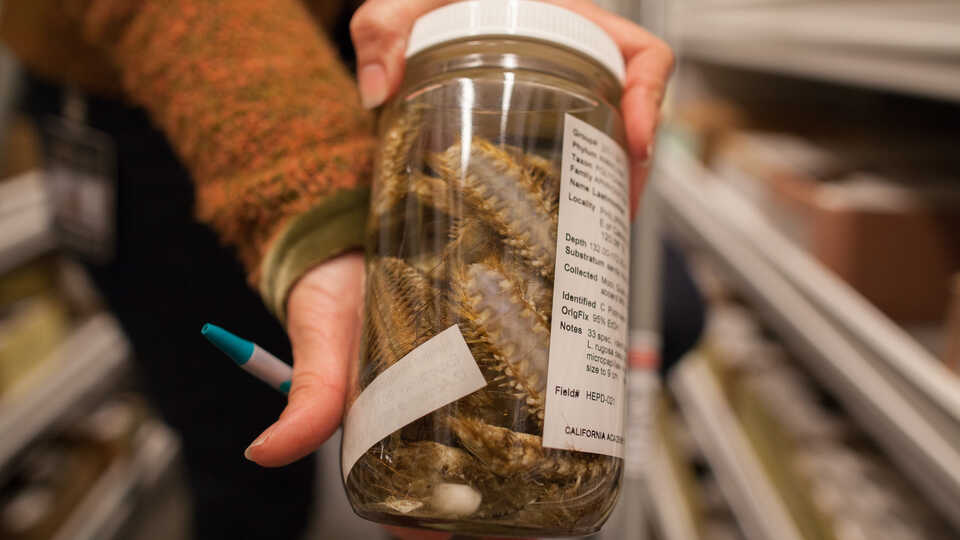Explore the highlights of our department's 160-year-plus history at the California Academy of Sciences.
Specimens may be acquired by staff collecting, by exchange, or by donation. No specimens will be accessioned without adequate labeling, collection notes, field notes, or other locality information, nor without appropriate legal documentation (collecting permits, export permits from country of origin, etc.) when applicable. All such information is to be deposited simultaneously with the specimens using both internal labels and corresponding digital data sheets. Whenever possible, accessioned material should contain a sufficient number of specimens to permit destructive examination (soft anatomy dissection, shell and tissue sectioning, chemical analysis, etc.). Donations with restrictions on the use of the material are not acceptable. All specimens collected by Academy staff are sacrificed in accordance with recommended techniques to prevent suffering.
Primary acquisitions are specimens or collections obtained as part of ongoing staff research projects. For living invertebrates, this currently includes echinoids, coelenterates, gastropods, polychaetes, and barnacles. Current research on fossils includes barnacles and echinoids.
Secondary acquisitions include the following:
- Well documented specimens or collections from geographic areas or taxonomic groups that are generally well represented in the existing collections and that we wish to build upon and fill taxonomic or geographic gaps. Specimens of current research interest, provided the material is either unrepresented in the existing collections, or is judged to add significantly to the understanding of the morphology, variability, geographic distribution, or geologic range. Areas of primary geographic interest include the eastern Pacific and the Indo-Pacific tropics.
- Well documented specimens or collections of taxa or groups that are not well represented in the existing collections (as in #1 above), but judged to be useful for comparative studies. We do not accept unsorted research materials or specimens lacking collection data.
